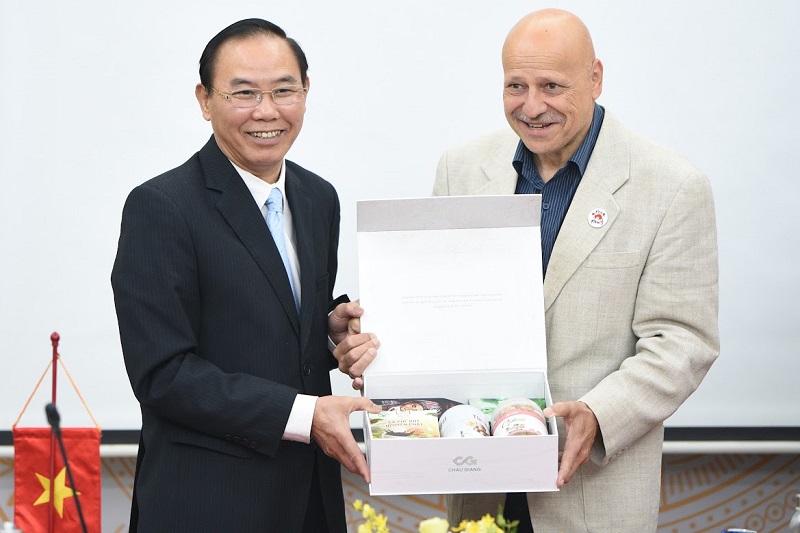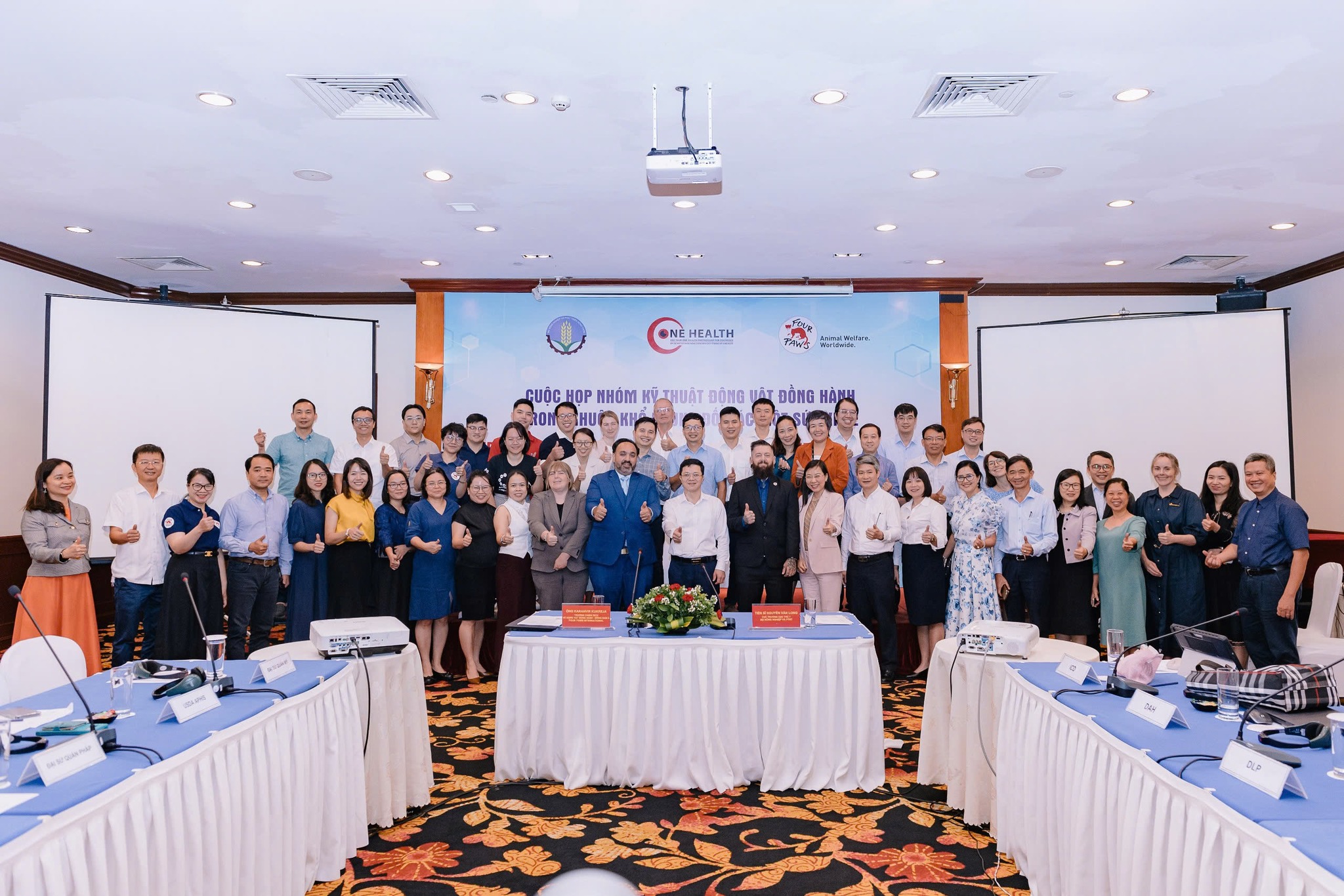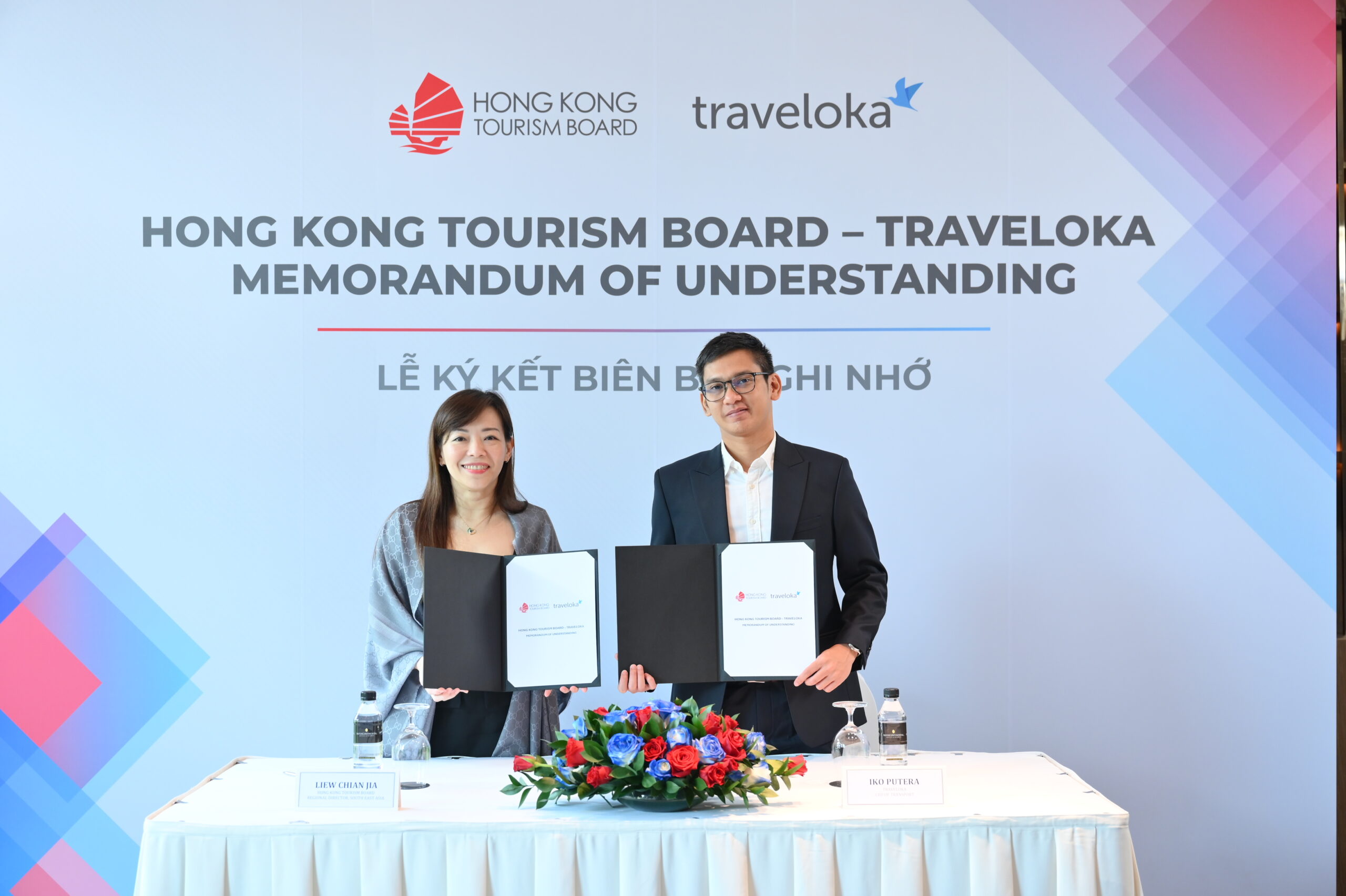The Ministry of Agriculture and Rural Development of Vietnam and FOUR PAWS International have signed an agreement for the global animal welfare organisation to become an official member of the Vietnam One Health Partnership (OHP), a framework for zoonoses control.
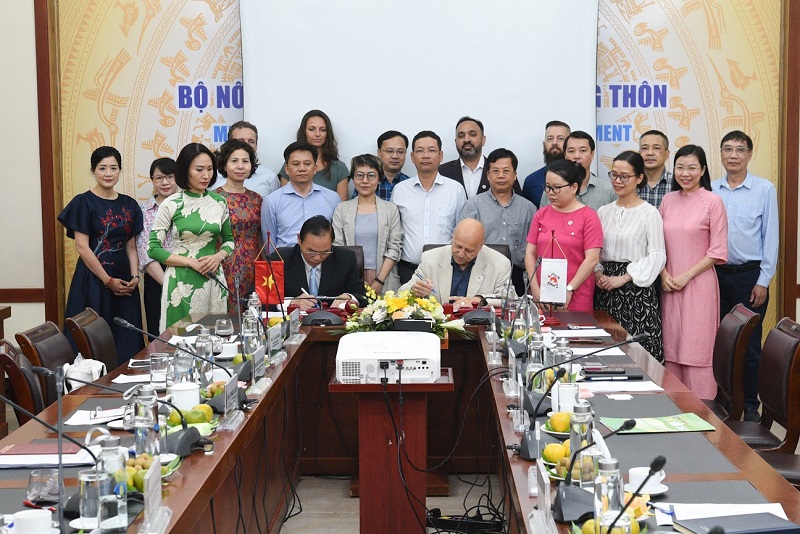
The Memorandum of Understanding (MoU) was signed by Mr Phung Duc Tien, Vice-Minister of Agriculture and Rural Development and FOUR PAWS Chief Representative in Vietnam, Mr Gerald Dick. A new working group under the partnership, that specifically considers One Health and welfare issues in relation to companion animals, was also formed.
The OH was first implemented in Viet Nam in 2003 under PAHI and renamed to OHP in 2016, comprised of the Ministry of Agriculture and Rural Development, the Ministry of Health and the Ministry of Natural Resources and Environment and more than 30 Vietnamese and international organisations for a strong collaboration to minimise the risks of zoonoses.
Vice Minister Phung Duc Tien says “We are honored to welcome FOUR PAWS to join the One Health Partnership Framework 2021-2025. As an official member, FOUR PAWS will have more opportunities to contribute and support the Viet Nam One Health Partnership in solving health problems, including the risk of future pandemics especially risks to dogs and cats such as rabies and emerging diseases. Trading, keeping, transportinig, and slaughtering dogs and cats in areas where pathogens are present, and in an unsafe, illegal manner will prevent Viet Nam from achieving the target of rabies eradication by 2030”
Mr Gerald Dick, FOUR PAWS Chief Representative in Vietnam: “FOUR PAWS is honoured to join Vietnam’s One Health Partnership for Zoonoses Control. It is an outstanding example of multisectoral collaboration and partnership, and shall be a role model for other countries. Together, we can make Vietnam – and the world – a safer and kinder place for humans and animals. We are specifically grateful to the Ministry of Agriculture and Rural Development for agreeing to form the Companion Animal Technical Working Group, and look forward to supporting this group, as well as other groups and to make Vietnam’s One Health efforts even stronger than they already are. It is important to also consider the recognized link between the dog and cat meat trade and rabies – a disease of international concern – and we look forward to discussing this with partnership stakeholders to see what ideally can be done in this aspect.”
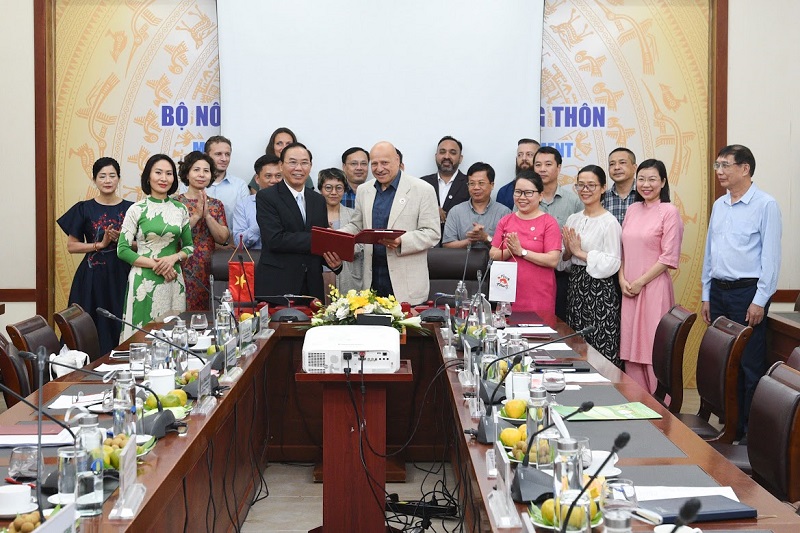
Dr Karanvir Kukreja, Head of Southeast Asia Campaigns (Companion Animals) for FOUR PAWS, added “A holistic view of health and disease is key – the increasing number of zoonotic diseases and outbreaks in the past few decades and the increasing frequency with which these happen – SARS-COV-1, Avian Influenza, Ebola – and quite likely – COVID19 – highlights that in taking care of the world’s health, one must consider the interface between humans, animals, and the environment. However, it is also important to consider the welfare of animals and humans as part of efforts to prevent the next pandemic – as this can play a key role in the likelihood of emergence and spread of novel pathogens. It is also important to keep in mind practices that present the ideal conditions for pathogen emergence – the dog and cat meat trade, factory farming and illegal wildlife trade – and what can be done to minimise the potential impact of these practices on the globe.”
After the signing ceremony, FOUR PAWS will work closely with the OHP Secretariat to develop a detailed working plan in order to improve companion animal welfare and health in relation to addressing One Health risks.
Background
The Vietnam One Health Partnership for Zoonoses Control was launched in the first phase from 2016-2020, with a second phase running from 2021-2025. The partnership reflects Vietnam’s support of commitment of the One Health approach. The partnership brings together national and international government and nongovernmental stakeholders under the leadership of the Vietnamese government, with seven technical working groups working on specific aspects.
FOUR PAWS has been working in Vietnam since 2019 to address the risks of the dog and cat meat trade. Every year, an estimated ten million dogs and cats are captured, transported, and slaughtered for their meat in Cambodia, Vietnam and Indonesia. The majority of these animals are stolen pets or community and stray animals taken from the streets to supply the trade. The sheer scale of the trade and the involved suffering makes it one of the most severe companion animal welfare issues in Asia, if not the world. In addition, there are severe health implications – with links between the dog and cat meat trade and rabies, as well as conditions ripe for disease emergence.
A FOUR PAWS survey conducted in early 2021 across Vietnam found that the majority of Vietnamese want their government to take action, with a total of 91% saying the trade should be banned or discouraged. When asked if they would support a ban on the dog and cat meat trade, 88% of respondents said that they would be in favour of such a measure. In addition, respondents were asked if they felt consumption of dog and cat meat was part of Vietnamese culture, with the resounding answer being no, with 95% indicating that this was not part of their culture. Furthermore, FOUR PAWS supports local animal welfare organisations and communities with humane and sustainable stray animal care programmes. FOUR PAWS is also a member of several animal welfare coalitions: Dog Meat Free Indonesia (DMFI), the Asia Canine Protection Alliance (ACPA) and the Cats Matter Too coalition, which lobby against the dog and cat meat trade in Southeast Asia, as well as the Asia for Animals Coalition, which works to improve the welfare of all animals across Asia.
